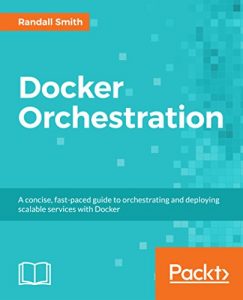Key Features
- Explore the new features added to the core Docker Engine to make multi-container orchestration easy
- Leverage tools such as Docker Machine, Swarm, Compose, and third-party tools such as Kubernetes, Mesosphere, and CoreOS to orchestrate containers
- Use docker compose with swarm and apply rolling updates for zero downtime deployments
Book Description
Docker orchestration is what you need when transitioning from deploying containers individually on a single host to deploying complex multi-container apps on many machines.
This book covers the new orchestration features of Docker 1.12 and helps you efficiently build, test, and deploy your application using Docker. You will be shown how to build multi-container applications using Docker Compose. You will also be introduced to the building blocks for multi-host Docker clusters such as registry, overlay networks, and shared storage using practical examples.
This book gives an overview of core tools such as Docker Machine, Swarm, and Compose which will enhance your orchestration skills. You’ll learn how to set up a swarm using the decentralized building block. Next, you’ll be shown how to make the most out of the in-built orchestration feature of Docker engine and you’ll use third-party tools such as Kubernetes, Mesosphere, and CoreOS to orchestrate your existing process. Finally, you will learn to deploy cluster hosts on cloud services and automate your infrastructure.
What you will learn
- Build scalable, reliable services with Docker
- See how to manage a service in Docker using Docker Swarm, Kubernetes, and Mesosphere
- Discover simpler orchestration tools such as CoreOS/Fleet and Rancher Cattle
- Understand cluster-wide logging, system monitoring, and troubleshooting
- Build, test, and deploy containers using Continuous Integration
- Deploy cluster hosts on cloud services and automate your infrastructure
About the Author
Randall Smith is a Sr. Systems Administrator for Adams State University. He has been administering Windows, Linux, and BSD systems since 1999 and has been active in helping other SysAdmins solve problems online and off. Randall has presented at the Colorado Higher Ed Computing Organization and Educause conferences on topics including Linux KVM and the Ceph storage system.






